Prioritize investment in education and health care in mountainous and island areas.
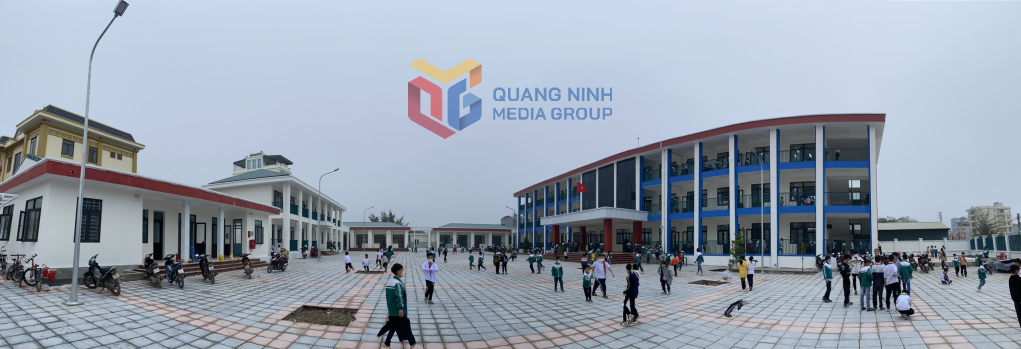
During the 5-year implementation of Resolution No. 06-NQ/TU of the Provincial Party Committee, Co To Special Zone has prioritized investment resources to synchronously develop socio -economic infrastructure, in which education and health care are identified as key, directly improving the quality of life of the people. With the characteristics of being an outpost island, far from the mainland, investing in upgrading schools and medical facilities is not only an immediate task, but also a long-term strategy, contributing to building a solid foundation for sustainable development.
In the field of education, Co To has paid special attention to investing in facilities and teaching equipment, while focusing on improving the quality of the teaching staff. In just 5 years, all 10/10 schools in the area were recognized as meeting national standards level 1. Notably, by 2024, 2 schools had met national standards level 2. Investing in new classrooms and equipment not only improves learning conditions for students, but also creates motivation to innovate teaching methods, apply information technology, and meet the requirements of the new general education program. This is a great step forward compared to the previous period, affirming Co To's determination in building a modern, high-quality education system.
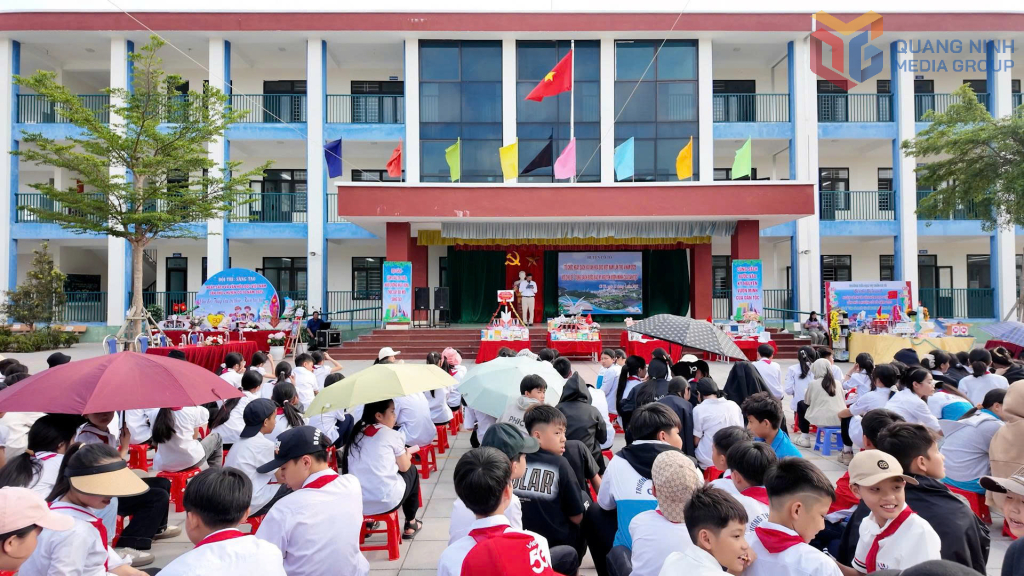
At the same time, Co To also focuses on training and fostering the team of managers and teachers in both professional and management skills. Every year, many training courses are organized, providing knowledge of politics , state management as well as modern teaching skills. Along with improving the quality of universal education, vocational training and career orientation for young workers are also given special attention. From 2021 to 2025, Co To has opened 4 vocational training classes for rural workers with 120 participants, opening up a new direction in shifting the labor structure, contributing to increasing income and stabilizing people's lives.
In the health sector, synchronous investment has brought a new look to the people's health care system on the island. Co To Medical Center has been upgraded to meet standards with more than 60 hospital beds, modern equipment, capable of meeting the basic medical examination and treatment needs and emergency care for people, fishermen and tourists. At the same time, all 3/3 medical stations meet national standards, ensuring the function of primary health care right at the facility. This is an important support to help people feel secure living and working on the island, minimizing difficulties due to geographical isolation. In particular, 100% of people in the area are issued health insurance cards according to the Central policy, ensuring the right to health care for all people.
A highlight is the application of digital technology in healthcare, when the rate of health management by electronic records reached 100%. This not only helps the Co To health sector manage and monitor the community health situation well but also improves the effectiveness of disease prevention and control. The health system on the island has well implemented national health programs, from maternal and child health care, malnutrition prevention, to food hygiene and safety management, and infectious disease control. Thanks to that, the epidemic situation is basically under control, and people's health is firmly protected.
The achievements in education and health care have contributed to significantly improving the quality of life of the people of Co To. Children are studying in a better environment, accessing new and comprehensive knowledge. People enjoy quality and timely health care services, significantly reducing the number of referrals to the mainland. This is also an important foundation for Co To to develop its marine economy and service tourism, because the quality of education and health care is a decisive factor for human resources and social stability.
The synchronous investment in education and health infrastructure has created a strong shift, bringing an important "push" for the comprehensive development of Co To. That achievement is not only a change in facilities and equipment, but more importantly, it is the improvement of the quality of teaching and learning, the quality of medical examination and treatment - practical values associated with the life of each person on the remote island.
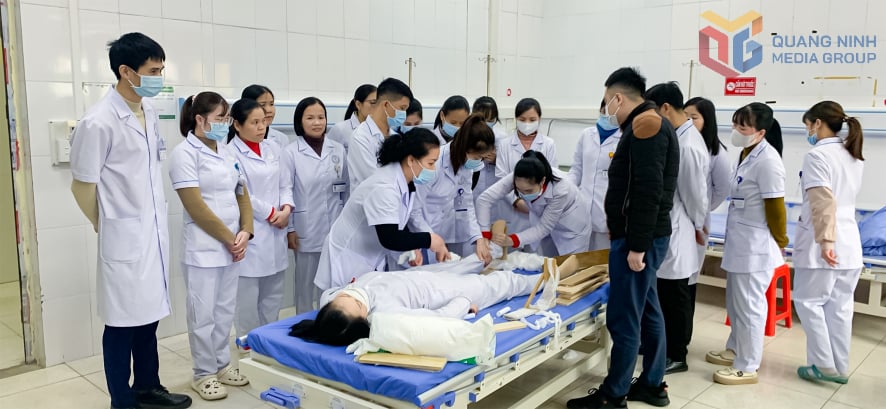
As mountainous localities, Binh Lieu, Luc Hon and Hoanh Mo communes are making strong strides in sustainable development. With the attention and investment in the right direction of the province, positive changes have been created, especially in the fields of education and health, thereby improving the quality of life for people, especially ethnic minorities here. From 2021 to now, investment, renovation and upgrading of educational facilities is considered one of the top priority tasks. With the attention of the province, localities have implemented many large-scale projects, contributing to creating a new look for the local education sector, such as: Projects to renovate and upgrade Hoanh Mo Secondary and High School (52 billion VND); Binh Lieu High School (95 billion VND) and Tinh Huc Primary School (95 billion VND) have been invested, creating a spacious and modern learning environment.
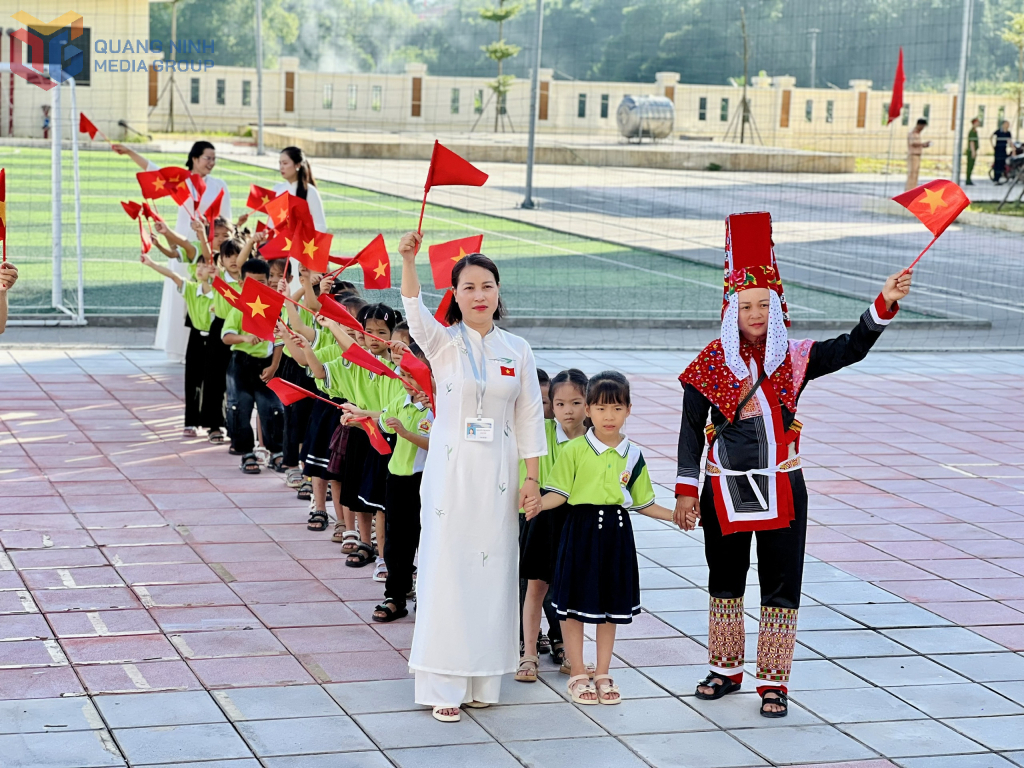
Not only relying on the province's capital, Binh Lieu district (old) also proactively arranged funds to renovate and repair 12 other schools and school sites, with a total investment of more than 100 billion VND. These efforts not only help 100% of educational facilities in the area meet the criteria of national standard schools but also achieve a rate higher than the average of the whole province. To date, 89.39% of classrooms have been solidified and all 24 schools have been recognized as meeting national standards, of which 11 schools meet level 2 standards, accounting for 45.8%.
In addition to infrastructure investment, the quality of the teaching staff is also focused on. Localities have reviewed, arranged and rotated managers and teachers in a reasonable manner. Retraining is also regularly implemented, ensuring that the teaching staff meets the requirements of the 2018 General Education Program. Thanks to that, the overall quality of education has had many positive changes. The rate of mobilizing ethnic minority students to class has always achieved high results, and the quality of excellent students has also increased significantly over the years.
Along with that, health care for people is also given special attention with the effective implementation of the National Target Program on socio-economic development in ethnic minority and mountainous areas, including health-related items to improve the quality of life for people, especially those in remote areas. Investing in medical facilities, equipment and medical staff is an important part for people to have access to better medical examination and treatment services, thereby improving health and reducing the burden of disease.
Breakthrough policies for education and healthcare in remote areas
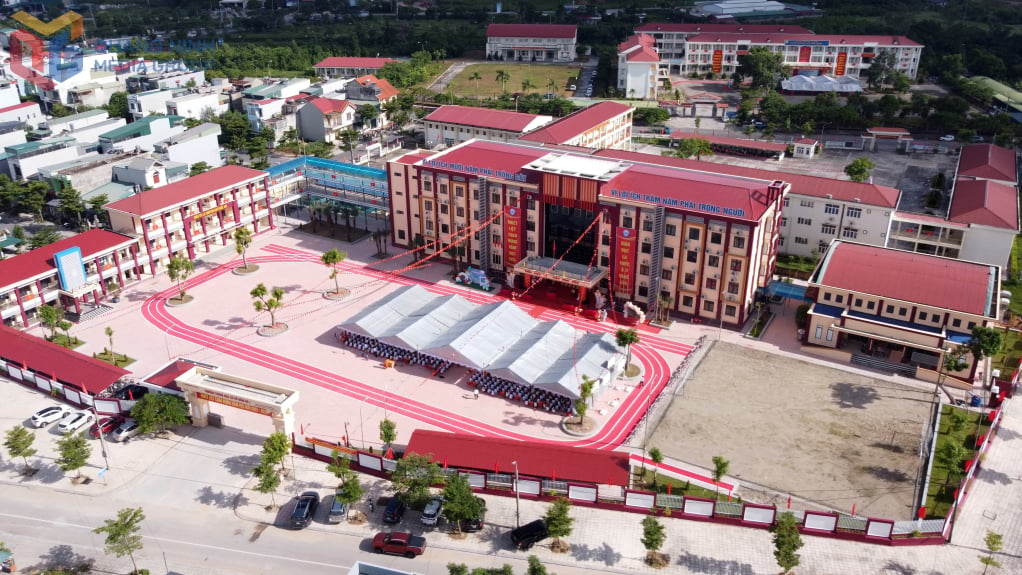
Special geographical conditions, difficult transportation, and limited infrastructure used to be major barriers to education and health care. Therefore, Resolution No. 06-NQ/TU dated May 17, 2021 of the Quang Ninh Provincial Party Committee on sustainable socio-economic development associated with ensuring national defense and security in ethnic minority, mountainous, border, and island areas for the period 2021-2025, with a vision to 2030, is a breakthrough policy, placing people at the center, leaving no one behind.
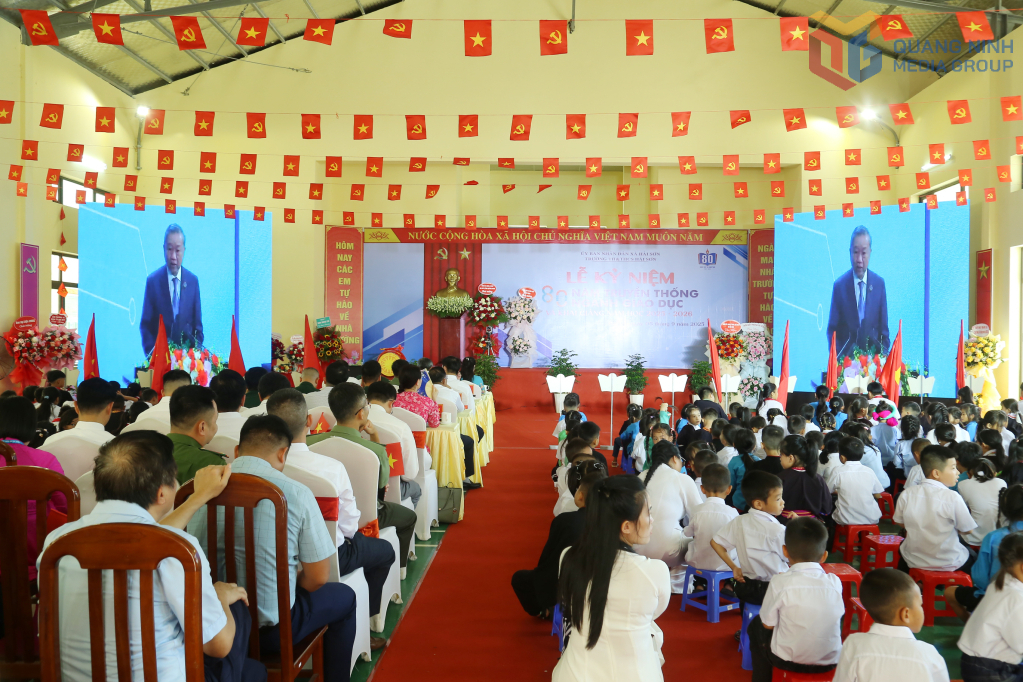
During the 5 years of implementing this important Resolution, the province has mobilized resources of over 120,000 billion VND to invest in communes and villages in ethnic minority, mountainous, island and border areas. In particular, the education and health sectors have always been considered the focus, accounting for a large proportion of the annual budget structure. From a foundation of many shortages, the network of schools, hospitals and health stations has been upgraded synchronously, gradually meeting the teaching and health care needs of the people right at the local level.
According to statistics, in the period of 2021-2025, Quang Ninh allocated more than 3,291 billion VND for education, training and vocational education, 2.3 times higher than the previous period. Of which, more than 2,626 billion VND is reserved for building and upgrading schools, especially in mountainous communes and ethnic minority areas. With this huge resource, up to now, all boarding and semi-boarding schools for ethnic minorities have been solidified, ensuring more safety and convenience. The rate of schools meeting national standards in the whole province reached 90.8% (560/617 schools); in particular, in difficult areas such as Ba Che, Ky Thuong, Luong Minh and Co To special zone, it reached 100%. The province has prioritized allocating increased budget revenue to school projects such as: Quang Minh Secondary School, Dam Ha 1 Secondary School, Quan Lan Kindergarten, Ninh Duong Secondary School... creating a new look for education in remote and difficult areas.
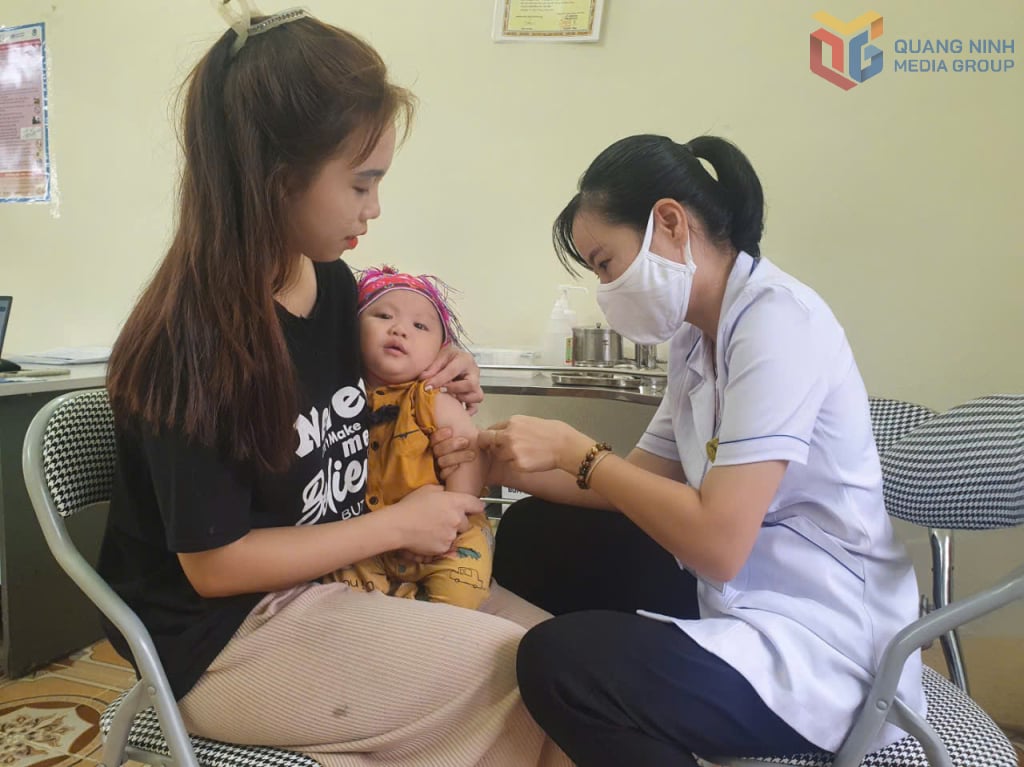
Along with facilities, Quang Ninh pays special attention to implementing specific policies for students in ethnic minority areas: supporting tuition fees, accommodation costs for boarding students, donating books and school supplies to children in difficult circumstances; building public housing for teachers living far away. Fundamental projects such as "Enhancing Vietnamese for preschool children and primary school students in ethnic minority areas" have helped tens of thousands of students improve their language skills, facilitating knowledge acquisition.
In addition, the teaching staff has been strengthened in both quantity and quality. Currently, the province has 2,685 teachers and staff who are ethnic minorities, accounting for 11% of the total number of staff in the education sector. Professional training courses, foreign languages, and pedagogical skills are held regularly, helping teachers in mountainous and island areas keep up with the requirements of reforming general education programs and textbooks.
In particular, vocational education is also given attention. The province has opened many vocational training classes for rural workers in mountainous areas, connecting with businesses in the coal, tourism and service industries. Thanks to that, the rate of trained workers has increased rapidly, contributing to raising the average income in rural mountainous areas to 83.79 million VND/person/year by the end of 2024.
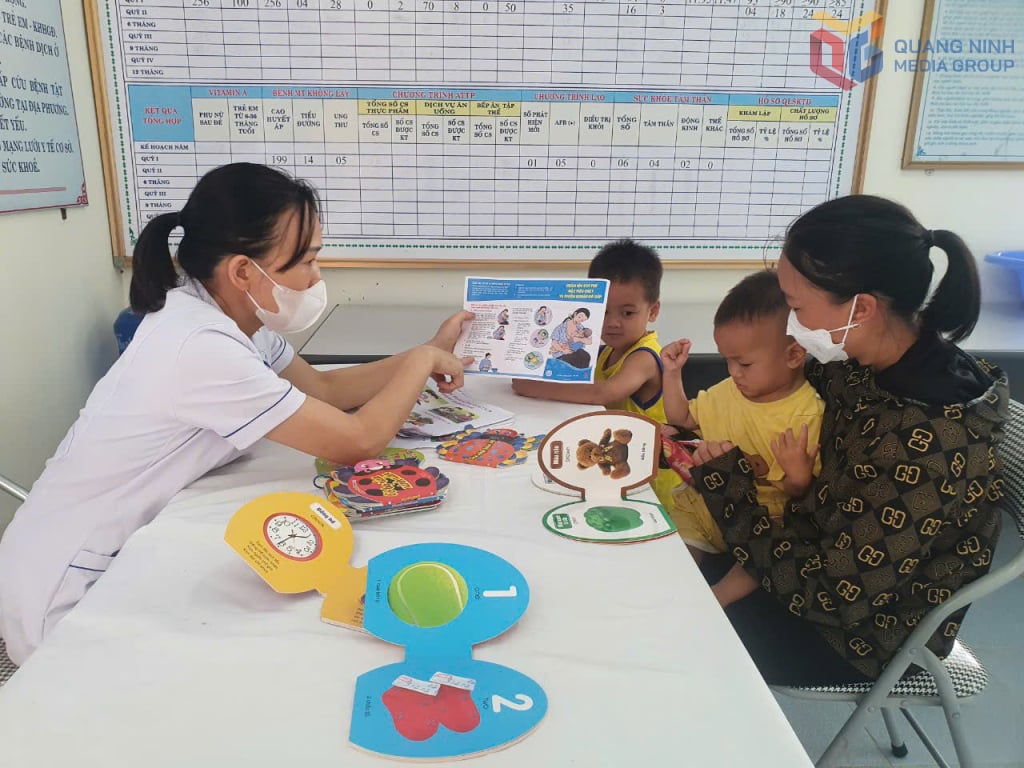
If education is an "investment for the future", then health care is the "current support" of the people. In the 5 years of implementing Resolution 06, Quang Ninh has invested in 3 large-scale medical projects, and at the same time renovated and upgraded dozens of hospitals and medical centers. In particular, 177 medical stations have received investment attention, many of which have been supplemented with modern equipment such as ultrasound machines, electrocardiogram machines, obstetric examination tables, dental examination chairs, etc. Thanks to that, many medical techniques that were previously only performed at the provincial level have now been deployed right at the grassroots level. Remote medical examination and treatment and electronic health record management have been expanded, with 100% of the province's population having health records. This is an important step in the digital transformation of the Quang Ninh health sector. The province has issued health insurance cards to more than 70,000 ethnic minority people, thereby ensuring people's health care rights and reducing the burden of costs. National health programs, maternal and child health care, malnutrition prevention, etc. are implemented synchronously, contributing to reducing the malnutrition rate of children under 5 years old to 10.5%.
The military-civilian medical model has also been highly effective. Many medical examinations and free medicine distributions have been organized for people in remote areas and islands. This not only ensures health but also strengthens people's trust in the care of the Party and State.
One of the highlights is that Quang Ninh has proactively issued many specific mechanisms and policies to narrow the development gap between mountainous, border, island areas and the central region. In addition to Resolution 06, the Provincial People's Council has passed Resolution 16/2021/NQ-HDND to support investment in infrastructure, issue health insurance cards to ethnic minorities; Resolution 99/NQ-HDND with 17 school projects in disadvantaged areas; and many resolutions on allocating capital to increase budget revenue for the education and training sector. In particular, Quang Ninh's creative approach is to use the state budget as "seed capital" to mobilize socialization. On average, 1 dong of budget capital has mobilized 5 dong of social capital, helping to maximize investment efficiency. This is the key for the province to both ensure resources for infrastructure development and encourage businesses and people to participate.
With investment in upgrading education and health infrastructure, Quang Ninh now has 637 educational facilities, most of which have been solidified and standardized; the rate of national standard schools is expected to reach over 91% in 2025. The grassroots health system has been comprehensively strengthened, 100% of communes have national standard health stations, contributing to reducing the load on upper-level hospitals.
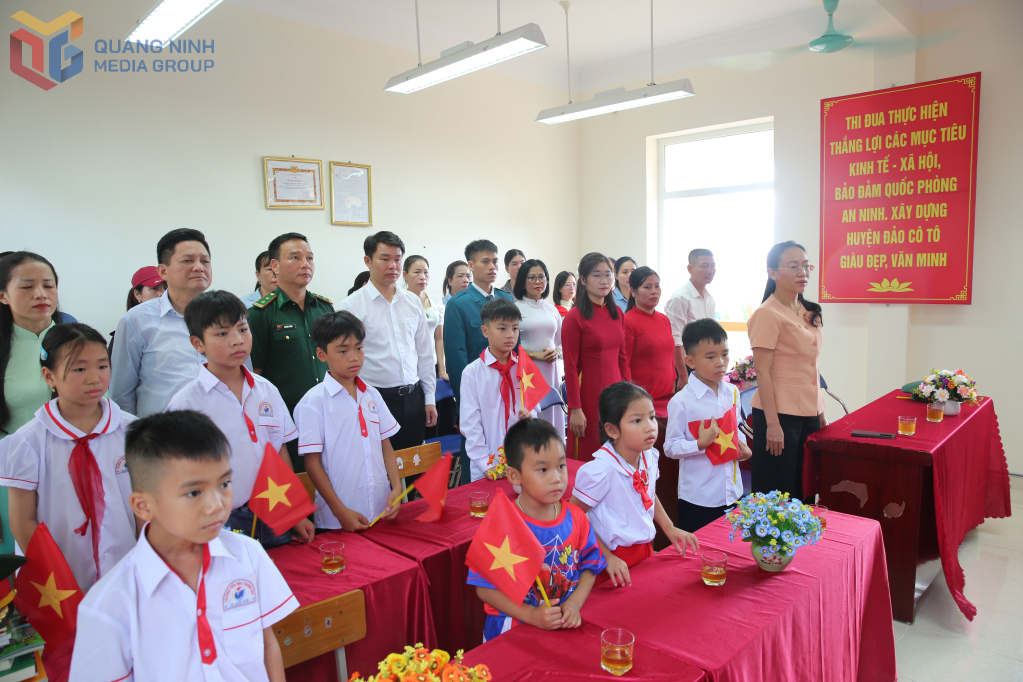
However, there are still some degraded health stations and schools in remote areas; there is a shortage of teachers and doctors; and the quality of services is uneven. These are issues that need to be prioritized in the coming period. Accordingly, in the period of 2026-2030, Quang Ninh continues to set the target: Allocating over 20% of the annual budget to education and training, maintaining a regular expenditure ratio of 30-35%; completing the national standard school network, prioritizing mountainous, island and border communes. Modernizing commune-level health facilities; investing in more modern equipment for health stations; expanding the application of digital health. Focusing on training local human resources, linking vocational education with local labor needs. Continuing to implement specific policies, especially supporting students, teachers and medical staff working in difficult areas.
It can be affirmed that after 5 years of implementing Resolution 06, Quang Ninh province has achieved many important results in investing in educational and medical facilities, gradually narrowing the development gap between mountainous, border, island areas and the center. Spacious schools, modern medical stations, and timely specific policies have brought people confidence, opportunities and a better future.
Source: https://baoquangninh.vn/nen-tang-vung-chac-cho-su-phat-trien-ben-vung-3375878.html


![[Photo] Students of Binh Minh Primary School enjoy the full moon festival, receiving the joys of childhood](https://vphoto.vietnam.vn/thumb/1200x675/vietnam/resource/IMAGE/2025/10/3/8cf8abef22fe4471be400a818912cb85)




![[Infographic] Notable numbers after 3 months of "reorganizing the country"](https://vphoto.vietnam.vn/thumb/1200x675/vietnam/resource/IMAGE/2025/10/4/ce8bb72c722348e09e942d04f0dd9729)
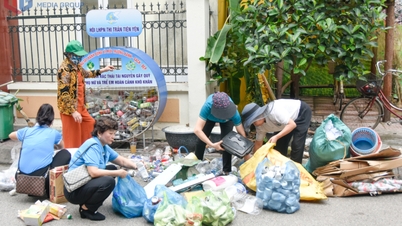
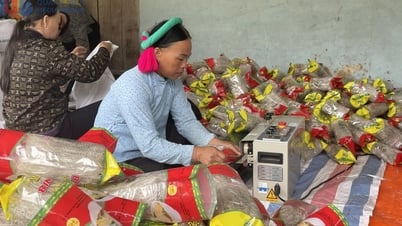
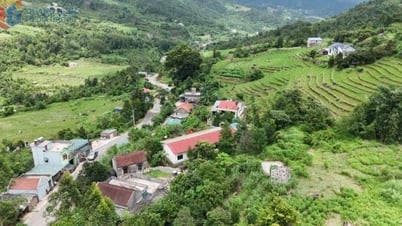


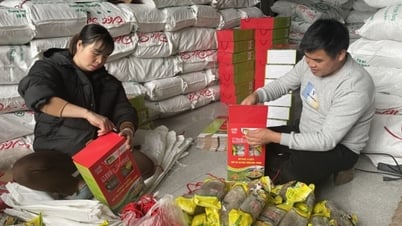


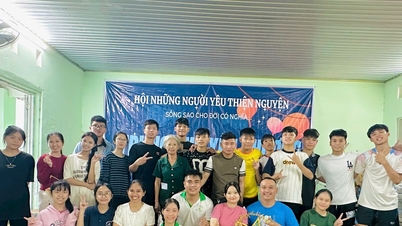

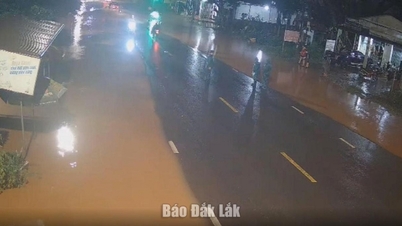





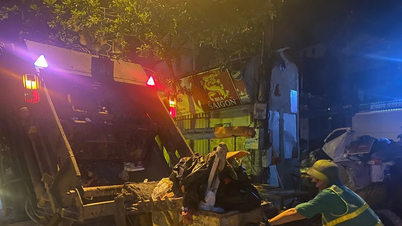





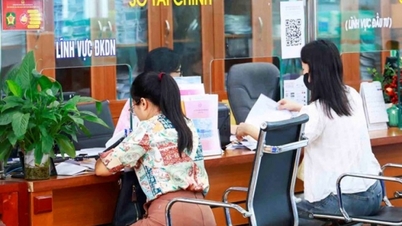

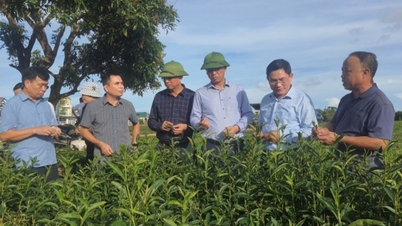

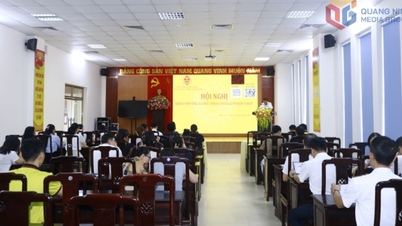
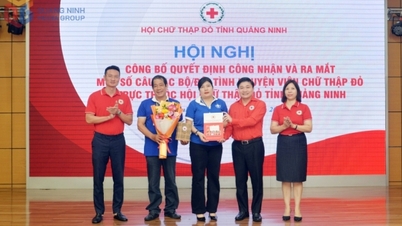

![[Photo] Prime Minister Pham Minh Chinh chairs meeting to deploy overcoming consequences of storm No. 10](https://vphoto.vietnam.vn/thumb/1200x675/vietnam/resource/IMAGE/2025/10/3/544f420dcc844463898fcbef46247d16)

































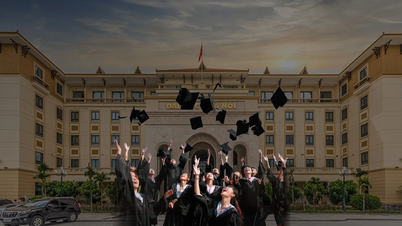





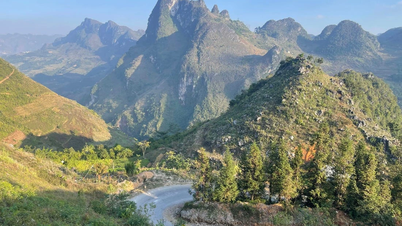


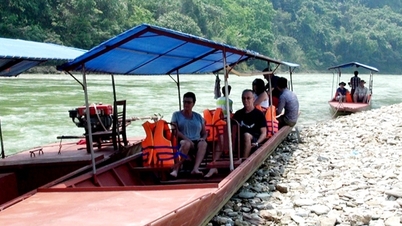








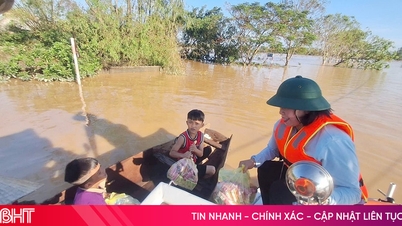

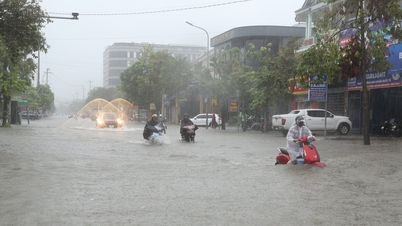
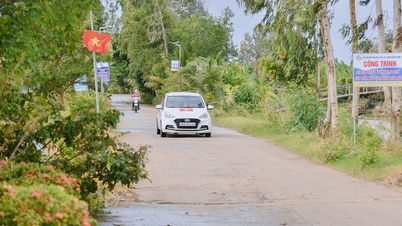

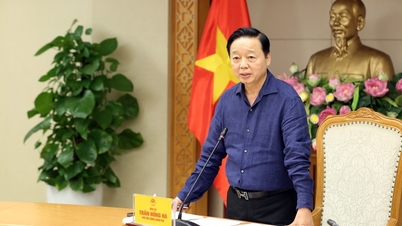

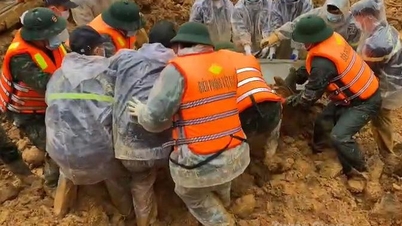

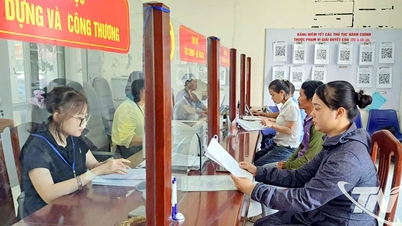












Comment (0)